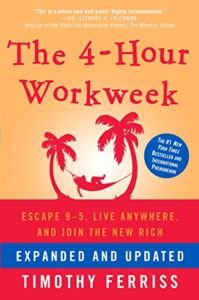- You are here:
- Home »
- Relationship Marketing »
- Digital transformation is changing our world exponentially
Digital transformation as the video aptly states means that business as usual and good enough is dead.
This transformation is apparent on a large scale with two notable yet disruptive companies. Just ten years ago Uber and Airbnb were just getting started. How is it that Uber, has over 2 million drivers worldwide and 4.5 Billion in revenue in 2017 and owns no taxi cabs? At the end of 2017, Airbnb reached a new milestone: 4 million listings worldwide. That’s more listings worldwide than the top five hotel brands combined.
Uber and Airbnb created a smart business model that challenged the status quo. These companies facilitate a system that leverages the speed of the internet and mobile technology. They maintain direct communication channels and connect the consumer directly to the business owner. Ten years ago, most companies were not concerned about a mobile strategy or social media strategy. As it relates to digital technology, consumer engagement ten years ago was still in its infancy. To most millennials, it seems impossible to imagine that a disconnected low tech world ever existed. Thirty-three years ago, I was thrilled to have a 4-pound cell phone with a six-inch antenna.
A few years back, Forbes reported that, according to Forrester, only 27% of businesses had a coherent digital strategy that set out how the firm would create customer value as a digital business. Fast forward to today, it seems almost everyone is going through a digital transformation phase or have recently completed it. — Entrepreneur Magazine
Now businesses have to adapt to a smarter way of doing things and are spending billions on infrastructure and making the transition. Shouldn’t you too become aware of the changes that could affect your job or career? If you dream of a better life, more time, and freedom, how might this emerging digital transformation benefit you? Let’s scale things down a bit for us regular folks. Now more than ever, opportunities abound in the digital age to enjoy the freedom of work from home or work from anywhere lifestyle.
How would you like a 4-Hour Workweek?
Here’s a great resource for you mobile nomads seeking freedom and a lifestyle most only dream about. The 4-Hour Workweek is the manifesto for a more efficient way to work and spells out a  profoundly transformational shift in thinking as it relates to an entrepreneurial lifestyle. You don’t have to quit your job or be a risk-taker. You don’t need to be born rich or graduate from a fancy college. Anyone can escape the “deferred-life plan,” which the author, Tim Ferriss labels as a “fragile collection of socially reinforced illusions.”
profoundly transformational shift in thinking as it relates to an entrepreneurial lifestyle. You don’t have to quit your job or be a risk-taker. You don’t need to be born rich or graduate from a fancy college. Anyone can escape the “deferred-life plan,” which the author, Tim Ferriss labels as a “fragile collection of socially reinforced illusions.”
The 4-Hour Workweek is about having a lifestyle of complete freedom without having a million dollars, by using the currencies of time and mobility. The digital transformation is making it possible for people to work anywhere with a laptop, mobile phone, and WiFi connection. For those of you desiring to escape the rat race, The 4-Hour Workweek is an excellent read or listen if you prefer Audible.
Whether it’s building a small store on Amazon to sell products online or developing a network marketing business it’s crucial to find a niche to capitalize on the momentum of the digital transformation. The digital transformation is even beginning to influence the 250-year-old insurance industry. In addition to my consulting and training business, I am building an online insurance agency and selling financial service products in several states without leaving my home — completely virtual.
I’ll conclude with a quote from Futurist speaker, Gerd Leonhard, producer of the Digital Transformation film.
Business as usual is dead. Increasingly, science fiction is becoming science fact. Exponential technologies are rapidly changing our lives and societies, every day, everywhere. We will need different skills, and we will need to get much better at driving change – or we will be driven by it. Most importantly, we should embrace technology but not become it. Anything that can be digitized or automated, will be – and anything that cannot be digitized or automated will become extremely valuable. Lastly, we must go beyond technology to define real human values in this new digital ecosystem.
Digital Transformation photo – Creative Commons.
